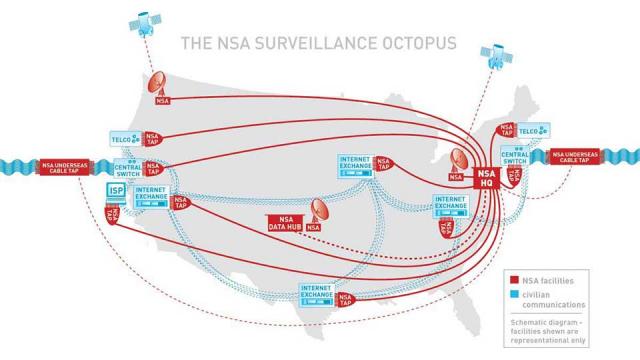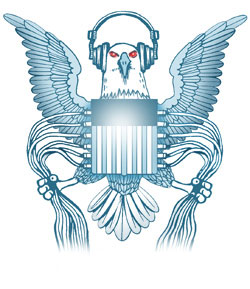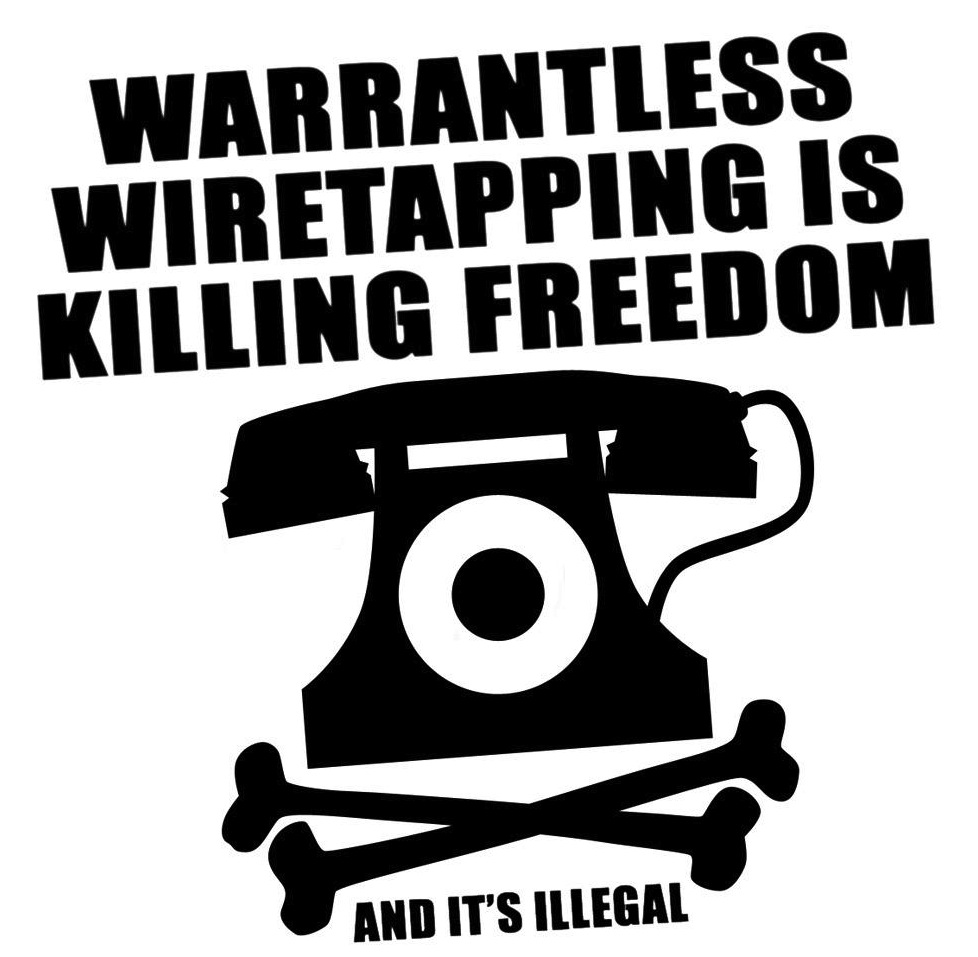
The Obama administration's surveillance of tens of millions of Verizon phone calls is questionable at best and illegal at worst, a top privacy-rights advocate said Thursday.
The National Security Agency's broad tracking of "telephony metadata," approved by a secret Foreign Intelligence Surveillance Act court, violated the law and longstanding practice on the use of subpoenas, said Marc Rotenberg of the nonpartisan Electronic Privacy Information Center in Washington.
"The FISA law is designed for the surveillance of foreign powers and foreign threats," said Rotenberg. "This is an entirely domestic operation, monitoring millions of calls between Americans who have nothing to do with anything abroad," he continued. "We think that what they are doing here is illegal."
Additionally, he said, the NSA's massive request steamrollered the traditional limits on the scope of subpoenas, which should be carefully tailored to specific people or specific acts, not metadata dragnets.
Rotenberg said that several years ago an opinion from the Justice Department's Office of Legal Counsel — itself a secret document — purported to give the administration the right to use FISA in this sweeping way, but that his group viewed the opinion — which few members of Congress or other officials have seen — as itself an illegal expansion of surveillance.Attorney General Eric Holder signed off on the opinion. A handful of members of Congress were briefed on it, but sworn to secrecy about its contents. They are now in a difficult position should they want to question the administration's use of it.
The Verizon story is yet more evidence that America is reaching a crisis point in the more than decade-long trend of expanding federal power to reach into the private lives of Americans. At the same time, the government inevitably is becoming more opaque, and more focused on leaks, in the name of protecting the investigations that it instigates in the name of national security.
The time has come for a deep, serious national debate on the balance between freedom and security. The president's spokesman, Jay Carney, has already said his boss would welcome it. He should. We all should.
Osama bin Laden's attack on Sept. 11, 2001, set off a new chapter in the age-old argument between liberty and security, a debate in which Ben Franklin warned that those who would sacrifice the former for the latter will end up with neither. The passage of the Patriot Act soon after the 9/11 attacks vastly expanded federal surveillance and investigatory powers, but the early Bush administration exceeded even that new authority.
An obscure state senator from Illinois named Barack Obama rose to the U.S. Senate and then to the presidency based, in part, on his presumed eagerness to restore the liberty-security balance. He had been a constitutional law lecturer and, as state legislator, had championed measures to prevent police from racially profiling drivers at traffic stops.
Republicans, by and large, have continued to wave through reauthorizations of the Patriot Act, preserving its basic architecture. No one expected the GOP to do otherwise — in Congress or elsewhere.
Civil liberties advocates placed faith in President Obama, but they have been largely disappointed, as he has focused on preventing a second 9/11 and yanking the "tough on defense" label away from Republicans, who wore it for decades.
It's hard to tell the difference between the Obama administration and the Bush administration on these matters, said Shayana Kadidal, a lawyer with the Center for Constitutional Rights in New York.
"Except for torture, it has been status quo," said Kadidal.
The NSA sweep of Verizon is being defended by an unusual alliance of Obama supporters and Republicans. They note that Congress since 9/11 has pressed hard for more extensive anti-terrorism investigations and that the Patriot Act has been repeatedly reauthorized with overwhelming GOP support.But an equally unusual alliance of civil liberties progressives and tea party Republicans sees in the NSA story another data point in the rise of the security state. Sen. Rand Paul (R-Ky.), for example, links together into one vast conspiracy the NSA's netting of phone records, the Internal Revenue Service's vetting of conservative groups and the Justice Department's subpoenaing of journalists' phone calls.
Paul can sometimes get carried away with his own rhetoric, but you don't have to be a libertarian — let alone a member of the tea party — to wonder why the NSA needed a record of every Verizon customer phone call for a three-month period that began on April 25. The surveillance doesn't end until July 19 (and could continue after that).
It stands to reason that if the NSA was so sweeping in its Verizon ask, then it has done the same, at some point, with other phone companies' records.
So go ahead and make your phone calls today, but you can assume that the Obama administration knows — should it care to check — whom you called and when and probably the location from which you made the call.
3 WAYS TO SHOW YOUR SUPPORT
- Log in to post comments














